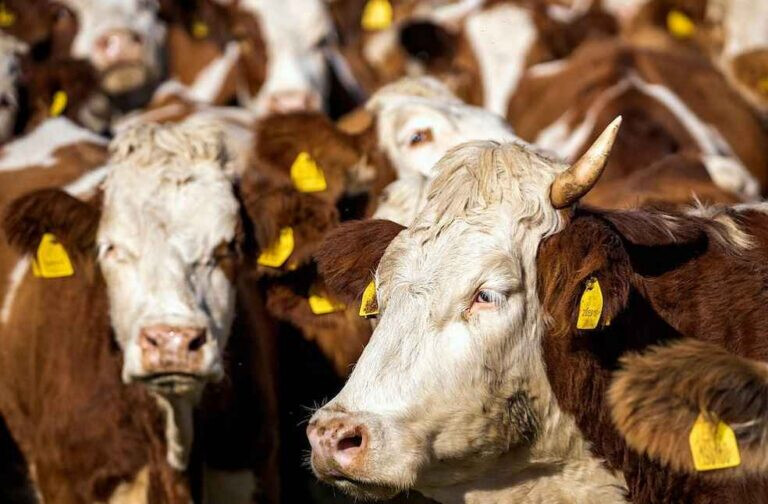
BEIJING, China – Argentina is close to finalizing a deal to export beef offal products to China. As the two nations iron out technical details, attention is focused on the agreement as China intensifies its efforts to diversify food imports, Reuters reports.
Georges Breitschmitt, head of Argentina's beef promotion institute (IPCVA), told Reuters in Beijing, "I believe the negotiations between the two governments are in their final stages. Only fine-tuning between the technical departments remains." He added that while the negotiation process has accelerated, the exact approval date remains uncertain. Another source involved in the negotiations also indicated that an agreement is expected soon. These sources revealed that Chinese officials are scheduled to visit Argentina on June 8 for further discussions.
This move comes as China seeks to diversify its agricultural imports and deepen trade ties with key suppliers like Brazil and Argentina, amidst global market disruptions caused by trade tensions with the United States. China's General Administration of Customs and the Argentine Embassy in Beijing did not immediately respond to Reuters' requests for comment.
Significance of Offal Exports and Market Trends
Argentina exports approximately 30% of its total beef production, with roughly two-thirds historically destined for China. However, the offal trade presents a different dynamic from general beef exports. Most offal is exported to the global market, with limited domestic consumption. This offal export agreement is expected to help Argentina access new high-value markets, while China secures a more diverse range of food sources. Offal includes various parts such as heart, liver, tongue, and kidneys, with demand for each varying based on specific culinary traditions and food cultures. China, with its long-standing culinary tradition of utilizing diverse ingredients, is anticipated to have a high demand for offal.
Despite China being the largest export destination for Argentine beef, Argentine beef shipments have recently seen a decline. Government data indicates that in the first quarter of 2025, China's share of Argentina's total beef exports was 56.4%, down from 68% in 2024 and 74.5% in 2023.
Breitschmitt partly attributed this decline to lower prices offered by China due to high inventories earlier this year. However, he added, "Volumes are picking up again in May," and suggested that China's reduced purchases of U.S. beef could create new opportunities for Argentina. In 2024, China imported a record 2.87 million metric tons of beef, with Brazil, Argentina, and Australia being its primary suppliers.
China's Food Security Strategy and Argentina's Role
The push to import Argentine offal is closely linked to China's food security strategy. As trade disputes with the U.S. persist, China is focusing on reducing its reliance on specific countries for food imports and securing diverse sources to enhance supply chain stability. Particularly, with unstable relations with the U.S. in the agricultural sector, China is strengthening cooperation with Latin American countries like Brazil and Argentina. This is interpreted as a strategic choice to prepare for geopolitical risks, beyond simply increasing trade volume.
As a major global producer of agricultural and livestock products, Argentina has significant potential to meet China's demand. With vast agricultural lands and abundant livestock resources, it produces various agricultural products including beef, grains, and soybeans, with its beef particularly renowned for its quality worldwide. Thus, Argentina is positioned to be a key partner in China's food import diversification policy.
Furthermore, China's offal imports are also related to shifts in its domestic food consumption patterns. With economic growth and rising income levels, Chinese consumers' meat consumption continues to increase, leading to growing demand not only for muscle meat but also for a wider variety of parts. Offal is a crucial ingredient in Chinese cuisine due to its unique flavor and nutritional value, making stable supply essential to meet the demands of the Chinese domestic market.
Future Outlook and Challenges
This offal export agreement is expected to further deepen agricultural trade relations between Argentina and China. Argentina stands to improve the profitability of its livestock farmers and secure stable foreign currency earnings through export diversification. China, in turn, is expected to secure stable supply sources and strengthen its food security.
However, beyond merely reaching an export agreement, several challenges remain for maintaining a sustained trade relationship. First, meeting hygiene and quarantine standards is crucial. Offal requires more stringent hygiene management than regular meat, making thorough hygiene control at Argentine production facilities and strict adherence to Chinese quarantine standards essential. Second, logistics and transportation infrastructure expansion are also important. Improvements in cold storage facilities and transportation systems may be necessary to efficiently move large volumes. Third, joint responses to market price volatility are needed. Fluctuations in international meat prices can affect bilateral trade, so exploring ways to cooperate for stable supply and price maintenance is important.
Ultimately, this agreement is poised to be an important stepping stone that will not only facilitate offal exports but also strengthen economic cooperation between the two nations and enhance global supply chain stability. Specific details of the agreement and implementation plans are expected to be announced during the upcoming meeting between officials from both countries on June 8.
[Copyright (c) Global Economic Times. All Rights Reserved.]



























